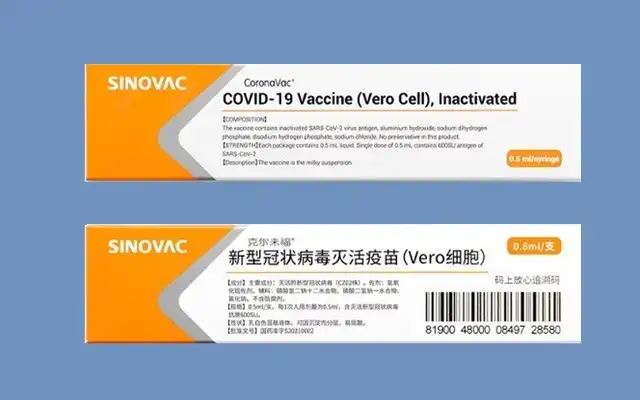SINOVAC Halts The Production of Inactivated COVID-19 Vaccine
- Normal Liver Cells Found to Promote Cancer Metastasis to the Liver
- Nearly 80% Complete Remission: Breakthrough in ADC Anti-Tumor Treatment
- Vaccination Against Common Diseases May Prevent Dementia!
- New Alzheimer’s Disease (AD) Diagnosis and Staging Criteria
- Breakthrough in Alzheimer’s Disease: New Nasal Spray Halts Cognitive Decline by Targeting Toxic Protein
- Can the Tap Water at the Paris Olympics be Drunk Directly?
SINOVAC Halts The Production of Inactivated COVID-19 Vaccine
- Should China be held legally responsible for the US’s $18 trillion COVID losses?
- CT Radiation Exposure Linked to Blood Cancer in Children and Adolescents
- FDA has mandated a top-level black box warning for all marketed CAR-T therapies
- Can people with high blood pressure eat peanuts?
- What is the difference between dopamine and dobutamine?
- How long can the patient live after heart stent surgery?
SINOVAC Halts The Production of Inactivated COVID-19 Vaccine
On January 10th, a news reporter contacted the product inquiry hotline of SINOVAC Holdings Biotechnology Limited. Staff confirmed the cessation of SINOVAC’s COVID-19 vaccine production.
If individuals still require this product, they are advised to check with local disease control centers for available stock.

It is currently not recommended to receive inactivated COVID-19 vaccines.
In February 2023, a research paper published by Chinese researchers in the latest issue of “China CDC Weekly” indicated that although the protective efficacy against severe illness can increase to over 70% within one month of receiving a third dose of the SINOVAC inactivated vaccine, the predicted efficacy gradually declines to below 50% after six months.
For COVID-19 patients with the clinical endpoint being “experiencing symptoms,” the research results revealed that the protective effect generated by three doses of the SINOVAC inactivated vaccine was only around 30% and 10% after 28 days and six months of completing the booster immunization, respectively. Specifically, the predictive protective effect against Omicron BA.4/5 was even lower.
As previously reported by Interface News, virologist Chang Rongshan cautioned that it is currently not advisable to receive inactivated vaccines. He pointed out that the antigenic changes in the current prevalent strains are significant, resulting in a much lower effectiveness of inactivated vaccines compared to other vaccine technologies. He recommended opting for mRNA vaccines or recombinant protein vaccines instead.
An insider from a company involved in earlier COVID-19 vaccine development, Xu Yue, stated, “The cost of research and development is one aspect, but the key issue is that even if you successfully develop a vaccine, the virus mutates, and the development speed simply cannot keep up. The pace of vaccine iteration is too fast, and companies genuinely cannot afford it, especially considering the costs of clinical trials. The vaccine becomes outdated before it even reaches commercialization.”
Xu Yue told reporters that unlike the influenza virus, which may undergo cyclic recurrence, the COVID-19 virus continues to evolve, and once it has circulated, it does not return, and the incoming strains are not old viruses. Therefore, when a new COVID-19 vaccine emerges, the old vaccine can be considered to have “exited the historical stage.”
SINOVAC Halts The Production of Inactivated COVID-19 Vaccine
(source:internet, reference only)
Disclaimer of medicaltrend.org
Important Note: The information provided is for informational purposes only and should not be considered as medical advice.



